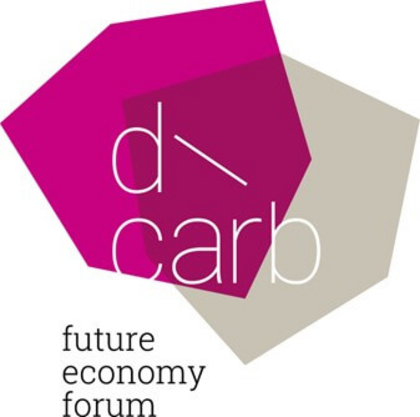Effective green industrial policy – the role of data, digitalisation and standards
Once out of fashion, industrial policy has made a strong comeback, partly driven by the enormous economic restructuring required by the need to reduce greenhouse gas emissions to net-zero by mid-century. The US, the EU, but also Japan, China and many other countries are all taking a much more active approach with tax breaks and direct subsidies to develop green technologies and markets. This workshop aims to offer avenues for policymakers to design better industrial policies that promote innovation without leading to an inefficient subsidy race, by making better use of data and empirical analysis to rigorously evaluate the extent and impact of industrial policy. It then zooms in to specific aspects, to explore the role of digital technologies in the green transition, and the importance of standards at the intersection of the green and digital transitions.
Event summary
10:30 – 11:15 Registration
Hertie School, first floor, next to reception
11:15 – 11:30 Welcome
Cornelia Woll, Hertie School Berlin, Nicola Brandt, OECD and Nils Handler, d\carb future economy forum
11:30 – 12:30: Driving low-carbon innovation for climate neutrality
Presentation: Antoine Dechezleprêtre, OECD
Discussion:
Eugenie Duoua, London School of Economics
Tobias Lechtenfeld, 1.5° Ventures
Moderated by: Nils Handler, d\carb future economy forum
Achieving climate neutrality and energy independence will require the accelerated diffusion of existing technologies, further cost reductions, as well as innovation in new technologies. However, climate-related frontier innovation, as measured by patent filings, has been declining since 2012. In contrast, the deployment of existing technologies seems on the rise. The focus on diffusion and commercialisation of existing climate-related technologies rather than the development of new innovations is the consequence of a policy emphasis on deployment rather than on R&D support. This presentation argues that reducing the costs of carbon-free technologies so that they become fully competitive with their high-carbon alternatives should be a primary objective of climate policy and that Science, Technology, Innovation and Industrial policies are critical to reaching this goal. Increasing public support for technologies that are still far from market, but necessary to reach carbon neutrality by 2050, is urgent. This should be complemented with other climate policy instruments – such as carbon pricing and the removal of fossil fuel subsidies – to encourage the adoption of clean technologies that are closer to market and redirect technological progress toward clean innovations.
12:30 – 13:45 Lunch break
13:45 – 15:00 Green industrial policies: identification and quantification
Presentation: Chiara Criscuolo, OECD
Discussion:
Katrin Kamin, Kiel Institute for the World Economy
Bernhard Kluttig, Federal Ministry for Economic Affairs and Climate Action
Philip A. Luck, US Department of State
Josefina Monteagudo, European Commission
Moderated by: Cathryn Clüver Ashbrook, Bertelsmann Foundation
The OECD will launch the analytical results of its Quantifying Industrial Strategies (QuIS) project. Based on a new methodological framework, this project inventories industrial policy expenditures, in a homogenous and harmonised manner. This has allowed for country-specific analysis and cross-country benchmarking, which the OECD will release publicly for this conference. The discussion will focus on the utilization of quantification methods to gain an objective view on the prioritization of industrial strategies and how this can help understand which industrial policy instruments are being used to drive the green transformation across different countries. Furthermore, the discussion will explore the design of industrial strategies and how they provide the rationale for the choice of instruments. Moreover, it will touch upon the role of regulation and framework conditions for innovation, such as patenting and licensing rules as well as standards, in promoting innovation and fair access to technology essential for the green and digital transitions.
15:00 – 16:15 The role of standards for the Green and Digital Transformation
Keynote:Laurie E. Locascio, National Institute of Standards and Technology and US Department of Commerce
Discussion:
Knut Blind, Fraunhofer ISI
Nigel Cory, Information Technology & Innovation Foundation
Gwen Cozigou, European Commission
Thomas Zielke, Federal Ministry for Economic Affairs and Climate Action
Moderated by: Nicola Brandt, OECD
Standards have been shown to support emerging technologies. They are increasingly seen as a strategic instrument in shaping the green transition, developing new markets and playing a key role in them. The United States, the EU and Germany are all developing standards strategies. The panel discusses different policy approaches to standard-setting in the EU and the US, their implications for innovation and trade. It explores how standards and data to measure compliance would need to be coordinated across borders to ensure that they promote innovation that furthers a sustainable transition to a decarbonized economy. What is the role for patenting frameworks and licensing rules in ensuring access to key technologies and standards, e.g. those related to connectivity? How do the US and the European approach differ in this respect, and what are potential implications for their ability to lead in the digital and green transition?
16:15– 16:30 Coffee break
16:30 – 17:30 The Green Transition and Artificial Intelligence – friend or foe?
Presentation:Lynn H. Kaack, Hertie School Berlin
Discussion:
Mei Lin Fung, People-Centered Internet
Stefanie Kunkel, Research Institute for Sustainability
Anne Mollen, AlgorithmWatch
Moderated by: Cornelia Woll, Hertie School Berlin
Digitalized solutions, including artificial intelligence and machine learning, can make production, consumption and mobility more efficient, reducing the use of natural resources and emissions. In that way, digitalisation can promote the green transition. On the other hand, many modern digital procedures, e.g. distributed ledgers used in blockchain solutions, require significant energy input. On balance, does digitalization help or hinder the green transition? And what can be done to ensure that the benefits of digitalization for a successful green transition outweigh the costs?
17:30 – 17:50 Green Innovation: The most Powerful Engine to keep the Climate from Changing
Introduction: Suganda Srivastav, Oxford Smith School
Keynote: Ufuk Akcigit, University of Chicago
Technological innovation and better management can bring about growth that is both inclusive and compatible with efforts to address the world’s climate emergency. Ufuk Akcigit focuses on innovation and its various drivers, noting that making the biggest productivity gains requires radical changes in the way of working. He will talk about how green R&D incentives can complement tools such as carbon taxes to achieve a climate neutral industry much more rapidly and how well-designed interventions can help an economy grow.
18:00 – 18:10 Closing Remarks
Nicola Brandt, OECD






